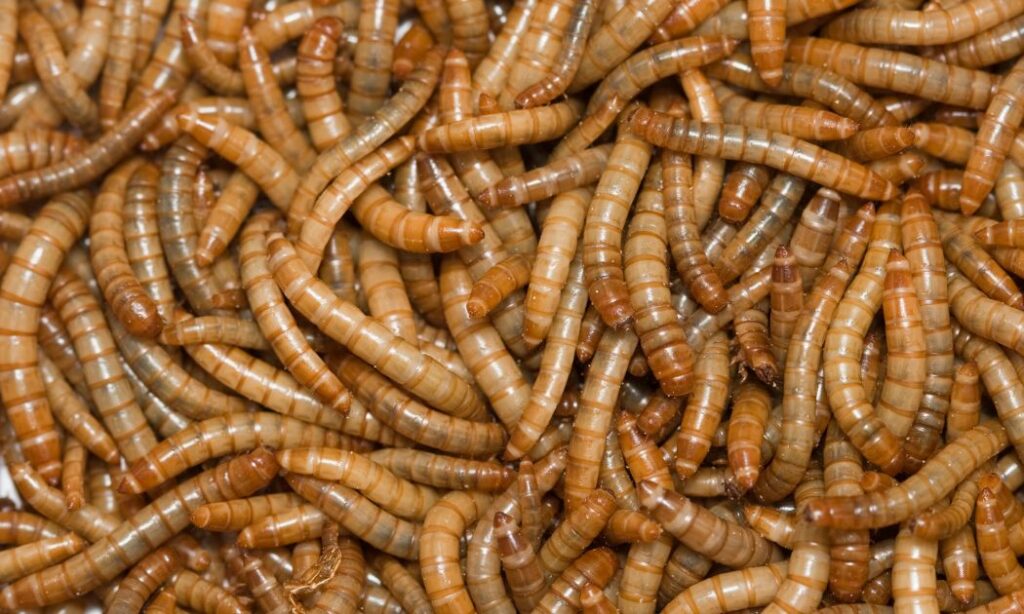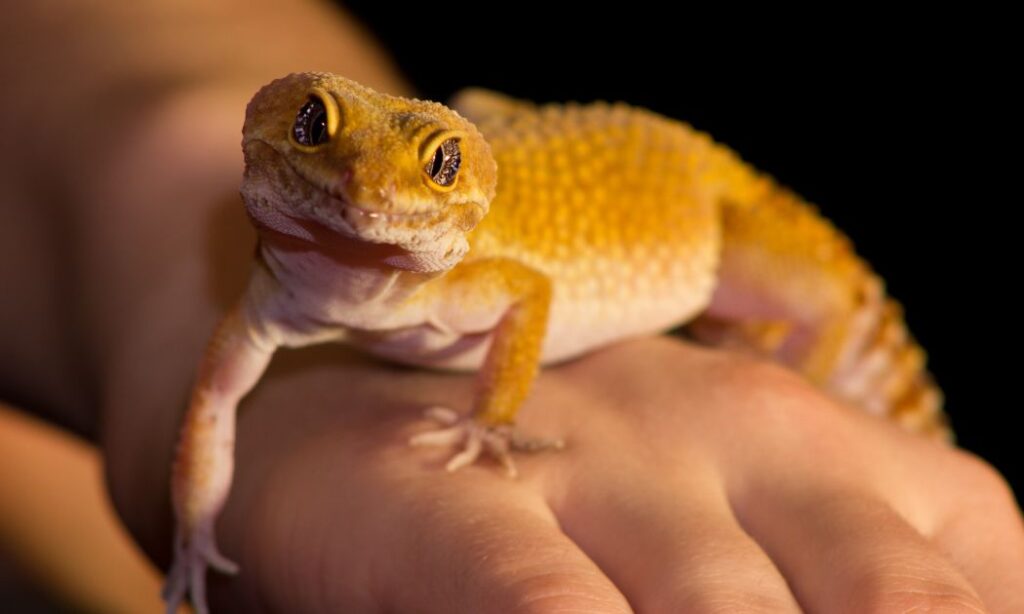Mealworms are a common sight in many pet stores, and their popularity as a food source for reptiles is well deserved. They are nutritious and easy to care for, making them an ideal meal for leopard geckos. However, there is some debate over whether or not mealworms are safe for leopard geckos. Some believe that mealworms can kill a leopard gecko, so it is important to do your research before feeding them to your pet. Here is what you need to know about the safety of mealworms for leopard geckos.
Too Many Mealworms Can Harm Your Pet Gecko
Mealworms are a popular food choice for many pet reptiles, including the leopard gecko. But can mealworms actually kill a leopard gecko? The answer is yes and no. Mealworms can be beneficial to a leopard gecko’s health in moderate amounts, but they may also pose dangers if fed too frequently or in large quantities.
Mealworms can provide a variety of essential vitamins and minerals that help support the growth and development of your leopard gecko. However, they are also high in fat, which can lead to obesity if not monitored carefully. Too many mealworms may also cause digestive problems such as constipation or diarrhea due to their hard exoskeleton. If left unchecked, these issues could potentially harm your pet’s overall health and even result in death.
Leopard geckos are a type of lizard that is native to Africa and Asia
Leopard geckos are a fascinating type of lizard that is native to both Africa and Asia, where they inhabit deserts and dry grasslands.
Though they come in many different color variations, most geckos have yellow-and-black spots on their skin, which explains why they are commonly referred to as “leopards”!
Geckos have the ability to climb on vertical surfaces, favoring things like rocks, walls and trees. They are also nocturnal and feed mostly on insects such as mealworms, while some geckos will also eat fruit.
As far as care requirements go, leopard geckos make great household pets due to their docile nature, though you’ll need to provide them with a special UVB light for basking and proper substrates for burrowing.
Geckos nocturnal animals, meaning they are active at night
Geckos are a type of lizard that live in a variety of habitats, but are most commonly seen scurrying across urban walls and surfaces.
Although geckos have excellent day vision, they actually live their lives in reverse – they are nocturnal animals, meaning they are active at night. During this time geckos can be found searching for insects such as mealworms to eat, resting on warm spots such as windowsills during the coolest evening hours, and playing with gecko buddies.
Gecko behavior is fascinating to observe and can easily be seen at night if you look closely enough!
Mealworms are a common food source for leopard geckos
Many gecko owners supplement their gecko’s diet with mealworms, a small beetle larvae that make an excellent source of food and nutrients for geckos.
Leopard geckos, in particular, seem to love eating mealworms! They can hunt them down in the wild as they come out of hiding at night, but providing them with pre-made containers makes it easier for gecko owners to monitor nutrition intake and provide them with a balanced diet.
Mealworms contain essential vitamins and minerals that geckos need, so offering mealworms is a great way for gecko owners to give their pets the nourishment they need to stay healthy.

Some people believe that mealworms can kill leopard geckos if they eat too many of them
Many gecko owners are concerned that mealworms, which are a popular feeder item for geckos, may be dangerous if their gecko consumes too many of them.
While leopard geckos are naturally omnivorous and can safely eat mealworms, it is still important to monitor the amount they eat per day in order to ensure they maintain proper health. Some people believe a gecko’s diet that is too heavy in mealworms may result in sickness and even death due to nutritional deficiencies or overfeeding.
It is always safest to feed geckos the recommended ratio of live food insects to other types of food as provided by an experienced herpetologist or veterinarian.
Can geckos live only on mealworms?
While geckos may be well known for their diets of insects, crickets, and spiders, it is often claimed that geckos can live solely off of mealworms. Surprisingly, despite the wide acceptance of this claim, there is no scientific evidence to back up the claim that geckos can live a healthy life eating only mealworms.
A few gecko owners have even conducted experiments to test this theory out with varied results; yet still not a single piece of conclusive evidence has been discovered. This revelation serves as an interesting reminder that we should always do further research into our beliefs before making assumptions.
If you are concerned about your leopard gecko eating too many mealworms, talk to a veterinarian or reptile specialist
Leopard geckos are often fed mealworms as a nutritious source of food. While these mealworms can be beneficial for geckos, it’s important to pay attention to the gecko’s diet and make sure not to overfeed the animal.
If concerned about your gecko eating too many mealworms, it is best to consult with a veterinarian who specializes in reptiles, or with a reptile specialist. They will be able to provide you with all necessary information about feeding your gecko and provide advice about how much food is enough.

In conclusion, the answer to the question of whether or not mealworms can kill a leopard gecko is generally no. Mealworms are a safe, healthy feeder insect for leopard geckos and can make an excellent source of nutrition. Mealworms are a common food source for leopard geckos. Some people believe that mealworms can kill leopard geckos if they eat too many of them. However, there is no scientific evidence to support this claim.
If you are concerned about your leopard gecko eating too many mealworms, talk to a veterinarian or reptile specialist.
Related posts:

Hi – I’m Erika, the lead gecko enthusiast here at Geckopedia! I write articles about pet geckos, including what to feed your leopard gecko and how to help your pet gecko live a long, happy life! I graduated with advanced degrees from UC-Berkeley, the University of Southern California (USC) and Indiana University-Bloomington, where I studied Biology and Animal Science. I use my experience to help others learn about gecko care, and I am an advocate for all topics gecko related!
